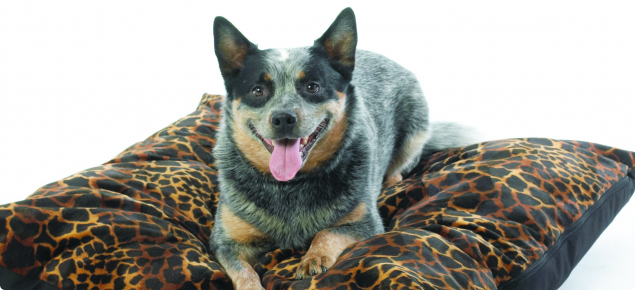Cats and dogs
As a general rule your pet cat or dog does not require any inspection or specific entry requirements to enter WA.
Quarantine WA does ask that you check your animals fur prior to entry to ensure there are no seeds or burrs attached to their coat that may pose a weed risk to our state.
Rabbits (domestic and commercial breeds only, not brown wild-type rabbit), guinea pigs, ferrets, rats and mice
These animals themselves do not have any specific entry requirements but they do need to be inspected to ensure there is no quarantine risk material in their cages. This means that any straw, hay, seed, plant material or fresh fruit and vegetables will need to be removed from the cages before the animals can be released.
All of the above animals should be declared or presented to Quarantine WA on arrival in WA. Inspection fees and charges may be applied. Please note; brown, wild-type rabbits are not considered domestic rabbits, and as such, are prohibited from import and keeping in WA.
Birds and fish
Birds and fish require inspection by Quarantine WA on arrival in WA. For more Information please refer to the importing domestic birds and fish page on this website.
Reptiles and amphibians (snakes, lizards, frogs and toads)
Many reptiles and amphibians are prohibited entry to WA and others will require a permit to import or keep. Please check the permitted status of your pet by contacting the Department of Biodiversity, Conservation and Attractions (DBCA) and checking online the Western Australian Organism List (WAOL). This must be done prior to importing animals into WA to avoid importing prohibited species. Checking the permitted status will ensure you have all required permits and avoid any possible stress if your pet is not allowed entry.
All reptiles and amphibians must be declared and presented for inspection on arrival in WA. Quarantine WA inspectors will take photographs of your animals and send them to DBCA for identification. The inspector may also issue an Inspector's Direction Notice giving lawful direction on how the animal must be kept and presented to DBCA for formal identification and/or how any contamination such as straw, fruit or vegetable matter must be handled or disposed of. These notices are a legal direction and must be adhered to under state legislation. Penalties and/or prosecution may be applied for non-compliance.
Spiders and insects
Under the Biosecurity and Management Act 2007 organisms entering WA must be declared as permitted or be accompanied by an import permit. It is adviseable to check the permitted status on the Western Australian Organism List (WAOL) prior to importing any spiders or insects. Further restrictions may also apply which can be checked on the Quarantine WA Import Requirements Search.
All spiders and insects must be declared to Quarantine WA on arrival in WA and the outside packaging should clearly identify the species and the feeding material.
Penalties may be applied for non-compliance of entry conditions and inspection fees and charges will also be applicable.
Sheep, goats, pigs and other livestock
Entry restrictions are applicable to all livestock entering WA. For individual species requirements please refer to the importing livestock pages on this website, or contact Quarantine WA on +61 (0)8 9334 1800 for further enquiries.
Native animals
It is adviseable to check with the Department of Biodiversity, Conservation and Attractions (DBCA) regarding what the requirements are for keeping and importing native species. Inspection by Quarantine WA will be required for contamination in cages.
Where inspections take place
At the Eucla and Kununurra road checkpoints, vehicles and animals are inspected 24 hours a day. This inspection only involves a check for quarantine risk material in the animal cages and photographs taken for sending to DBCA for confirming identification of the animal. Further inspection at your destination may be required. If the correct permits have not been sought or the animal is of a prohibited species re-export out of WA may be required at the importers expense. In some cases ownership of the animal can be transferred to the state department.
At Perth Domestic Airport inspections are carried out in the quarantine area of air cargo buildings during business hours (see below). Most animals transferring to Regional airports will be inspected at Perth Domestic Airport prior to transhipping. The animal will be held in the quarantine area until cleared by an inspector. A delay may occur if an inspector is not immediately available.
- You must arrange transport of your animals so they can be inspected during business hours, even if you are arriving at a different time.
- You are responsible for your animals welfare while they await inspection. Animals arriving outside business hours will be held in appropriate facilities until inspected during business hours
Inspection hours/days
Business hours: 7:30 am to 4:30 pm
Business days: Monday to Friday excluding public holidays.
NO Inspections are available outside these times.
Contact Quarantine WA to arrange inspection on 08 9334 1802

